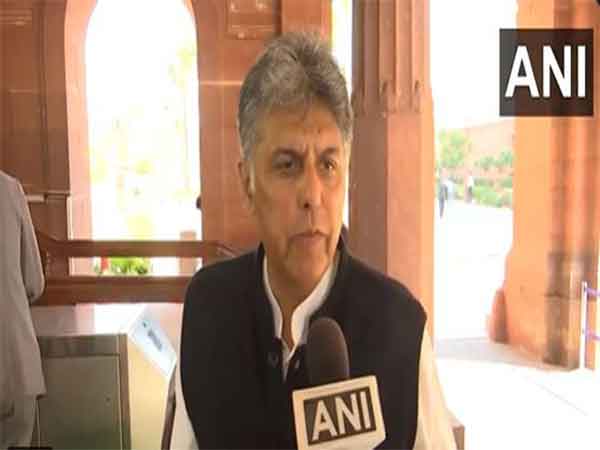
Additional reporting by Julia Roberts A “promising” university graduate is behind bars after crashing his dad’s Range Rover into a taxi and killing the rear-seat passenger. Shiam Sugarnan, 22, was driving on the wrong side of a dual-carriageway towards Dover when he caused the almost head-on collision at more than 50mph. Despite Sugarnan’s efforts to revive him, Martin Waters, 57, was pronounced dead at the scene in the early hours of September 2, 2022.
Following his arrest, Sugarnan denied causing death by dangerous driving. But a jury at Canterbury Crown Court found him guilty in February at the end of a four-day trial, where he chose not to give evidence. He was jailed for three years at the same court on Friday (March 28).

At the same hearing, his victim’s wife of 37 years, Gayle Waters, said she wonders how she "will ever continue life without him” and described Mr Waters as “not just my husband but my best friend". Howard Godfrey KC, defending, described the incident on the A2 Jubilee Way as a “fatal accident” for which Sugarnan is deeply remorseful. But Judge Simon James told the London School of Economics (LSE) graduate Mr Waters’ death was a result of “your dangerous driving”.
“Despite the fact that no one is suggesting that you deliberately set out to cause him harm, let alone kill him, it was your reckless omissions and failures that are the sole reason he is no longer with his family.” Prosecutor Rio Pahlavanpour explained how, as Sugarnan drove along the southbound carriageway towards Dover ferry terminal, he overtook a stationary car in his lane. But he then failed to move back over and therefore headed along what was the northbound carriageway for over a kilometre, ignoring an illuminated 'Keep left' sign.
The taxi on the other hand was heading in the opposite direction, in the correct lane and below the 70mph speed limit for northbound traffic. Although both drivers swerved when they saw the oncoming headlights, neither was able to avoid the collision and hit each other almost head-on. Mr Waters, a train conductor who lived in Deal, was returning from work at the time.
The court was told that despite the efforts of the emergency services and members of the public he died of multiple injuries. Sugarnan, of Hagden Lane in Watford, was aged 20 at the time and studying at the LSE. He was also part of a training course with PricewaterhouseCoopers (PwC).
With no previous convictions, he had held a clean driving licence for about two years but had never driven in Kent before the day of the accident. Sugarnan’s barrister argued he had been misled by a lack of road markings - since corrected by the public authorities - and that his sentence could be suspended. “There’s no suggestion of him being fatigued, and the 53mph that he was going was entirely appropriate for that dual-carriageway - he was just on the wrong side of the road,” said Mr Godfrey.
“And after the collision, what does he do, does he run away? No, he goes to try and help Mr Waters, trying CPR, to no avail. “As a result of this conviction, he was dismissed from his training contract with PwC. “Since the incident, his father has also passed away, so he has had to take over running the family business.
“Notwithstanding the terrible loss of Mr Waters and the unimaginable pain felt by this family, locking up Shiam Sugarnan is simply not necessary in the interests of justice.” In victim impact statements, the court heard Mr Waters was a loving husband to wife Gayle. “At the time of his death, we had been together for 37 years,” Mrs Waters’ letter told the court.
“He was the first boyfriend I ever had - he took the stress out of life for me. “I miss him terribly and sometimes wonder how I will ever continue my life without him - he was not just my husband but my best friend.” Sugarnan faced no separate charges for causing reported injuries to the taxi driver, whose victim impact statement was also read in court.
Having suffered broken ribs and PTSD, they said: "I had to have a rotation of friends to help with both my physical injuries and the trauma of what happened. “It took months for me to return to driving. I was not able to return to taxi driving until two years later.
" Deciding the length of Sugarnan’s sentence, Judge James made reductions to account for the defendant’s youth and good character. “This is a truly tragic case and there is in reality no sentence which I can pass which can possibly come anywhere close to providing solace for those who knew and loved Mr Waters,” said the judge. “Equally, those who know you, many of whom have taken the time and trouble to attest to your positive attributes, will almost certainly struggle to accept that the immediate imprisonment of such a decent young man so full of promise is likely to achieve anything constructive.
“Although I have been invited to conclude that you have exhibited genuine remorse and have no difficulty in accepting that you understand and empathise with the grave consequences for others of your actions, the fact that you refused to accept any culpability, insisting in the face of overwhelming evidence to the contrary that you were in no way at fault or to blame for the collision, means that it is difficult to reduce your sentence significantly further. “It gives me no pleasure to have to send a young man of your undoubtable promise into custody. “The simple fact is that the law demands a conclusion when a death of an innocent person is caused by another’s clear and obvious fault that the consequences are simply too serious to justify the imposition of anything other than an immediate sentence of imprisonment.
“The least sentence I feel able to impose is one of three years imprisonment.” Judge James told Sugarnan he would be released after serving 40% of his prison sentence. It comes after a new law in 2024 changed the rules for early release to help ease prison overcrowding.
In essence, many prisoners who would previously have been released at the halfway point are now released after serving 40% of their sentence behind bars. Sugarnan was disqualified from driving for five years and will be not be permitted to drive thereafter until he passes an extended re-test. Speaking after the hearing, Gayle Waters said: “It’s been a long time coming, but three years is not long enough.
“Whatever he got it was never going to be enough to bring him back.”.











